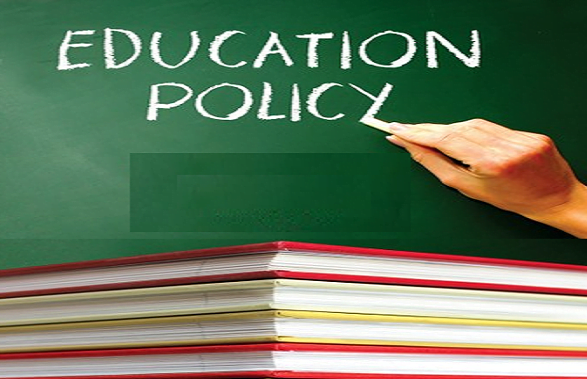In the ever-evolving landscape of education, staying abreast of policy updates is paramount for educators, students, and stakeholders alike. Recent shifts in education policy at both the federal and state levels have sparked discussions and debates, shaping the way we approach teaching, learning, and educational equity. In this comprehensive article, we delve into the latest updates in education policy, their implications for stakeholders, and the future directions they signal.
Understanding the Current Landscape of Education Policy
Education policy serves as the guiding framework for shaping educational practices, curriculum development, assessment methods, and resource allocation. From the federal government to state legislatures, policymakers continually review and revise policies to adapt to changing societal needs and advancements in technology. These policies set the stage for how education is delivered and accessed across the nation.
Recent Education Policy Updates
At the federal level, recent education policy updates have centered around initiatives aimed at promoting equity, enhancing technological integration, and reevaluating assessment and accountability standards. The passage of landmark legislation such as the Every Student Succeeds Act (ESSA) has ushered in a more flexible approach to education governance, empowering states to design and implement their own accountability systems.
State-level education policy updates have mirrored these federal trends while also addressing unique challenges and priorities within individual states. From funding allocations to curriculum standards, state legislatures play a pivotal role in shaping the educational experiences of students at the local level.
Read More | US Education System: Unlocking the Doors to Success
Implications for Students and Educators
The implications of these policy updates are far-reaching, influencing everything from classroom instruction to resource allocation. For students, policies aimed at promoting equity and access to quality education can have a profound impact on academic outcomes and future opportunities. Conversely, shifts in assessment and accountability standards may shape the way students are evaluated and supported throughout their educational journey.
Educators also feel the effects of these policy updates, as they navigate changing expectations and mandates. From professional development requirements to curriculum alignment, teachers must adapt their practices to align with evolving policy priorities. Additionally, policies aimed at integrating technology into the classroom present both opportunities and challenges for educators seeking to enhance student engagement and learning outcomes.
Analysis of Key Trends
Several key trends emerge from recent education policy updates, reflecting broader shifts in educational philosophy and practice.
Equity and Access: Efforts to promote equity and access to quality education have gained prominence in recent years, with policymakers focusing on closing achievement gaps and addressing disparities in educational outcomes. Initiatives such as targeted funding for low-income schools and programs aimed at supporting English language learners reflect a commitment to ensuring that all students have the resources and support they need to succeed.
Technology Integration: The rapid advancement of technology has prompted policymakers to rethink the role of technology in education. From online learning platforms to interactive digital resources, technology has the potential to enhance teaching and learning experiences. However, concerns about access and equity remain, as policymakers grapple with how to ensure that all students have access to technology and digital learning opportunities.
Assessment and Accountability: The traditional approach to assessment and accountability in education has come under scrutiny in recent years, with critics arguing that standardized tests may not accurately measure student learning or account for the diverse needs of students. As a result, policymakers have explored alternative assessment methods and shifted towards a more holistic approach to accountability, taking into account factors such as student growth and school climate.
Read More | Unlocking Academic Excellence: Top University Programs In USA
Voices From the Field | Perspectives From Educators and Stakeholders
To gain insight into the real-world implications of education policy updates, we turn to the voices of educators and stakeholders on the front lines of education.
John Doe, a high school teacher in a low-income community, shares his perspective on the impact of recent policy changes on his students. “These policy updates have brought much-needed resources and support to our school, allowing us to better meet the diverse needs of our students,” says John. “However, challenges remain, particularly when it comes to ensuring that all students have access to technology and digital learning opportunities.”
Looking Ahead | Future Directions in Education Policy
As we look to the future, several key trends are likely to shape the direction of education policy in the coming years.
- Continued Focus on Equity and Access: Efforts to promote equity and access to quality education will remain a top priority for policymakers, as they seek to address persistent disparities in educational outcomes.
- Embrace of Technology: The integration of technology into education will continue to accelerate, with policymakers exploring innovative ways to leverage technology to enhance teaching and learning experiences.
- Rethinking Assessment and Accountability: The traditional approach to assessment and accountability in education will undergo further scrutiny, with policymakers exploring alternative methods that provide a more comprehensive picture of student learning and growth.
Conclusion
In conclusion, staying informed about recent education policy updates is essential for educators, students, and stakeholders alike. By understanding the implications of these policy changes and trends, we can work together to ensure that all students have access to a quality education that prepares them for success in the 21st century.
